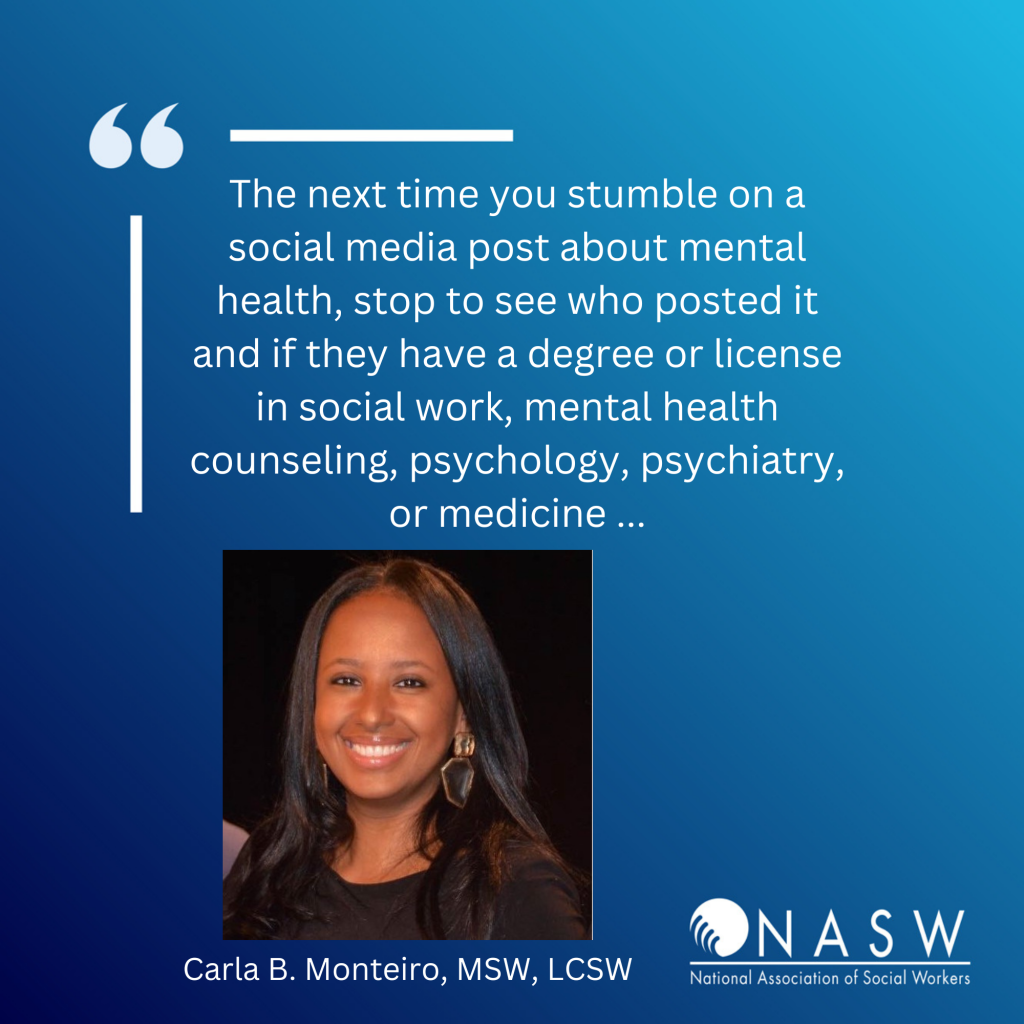By Carla B. Monteiro, LCSW
The past two years were filled with fear and uncertainty, exacerbating a mental health crisis with an increase in anxiety, depression, suicide rates, and substance abuse.
I see the devastating effects of this crisis in our community, emergency departments, and substance-use treatment centers through my roles as an emergency psychiatric and addiction clinical social worker. I have a master’s degree in social work and am a licensed certified social worker (LCSW). I cite my credentials up front because it is essential to establish trust and credibility for what I want to share.
Storytelling can be part of the healing process in one’s mental health journey. But sharing false or inaccurate mental health guidance on social media can lead to potentially dangerous outcomes.

It is one thing to share your own experience living with mental illness, but to suggest that mental illness is not real or should be dealt with without the guidance of a trained professional can be harmful. As a mental health professional, it is alarming for me to watch folks on social media mock mental illnesses, invalidate symptoms, and share misleading information.
My concern is not unwarranted. PlushCare, an online mental health care platform, recently published a study that found that 84 percent of advice given on TikTok was misleading, and 14 percent of the videos included content that could be potentially damaging. Only 9 percent of the people – out of the 500 surveyed for the study – had relevant qualifications in their respective fields.
It is essential that anyone sharing mental health-related advice has the proper credentials. In some cases, people have changed their titles or portrayed themselves as “mental health experts,” but do not have the training, degrees, or licensure, which makes them unqualified to impart recommendations regarding diagnosis and treatment.
This is of immense concern for vulnerable populations, especially in communities where mental illness has a history of being taboo – like in communities of color here in Dorchester, Mass. False or misleading information perpetuates the stigma of mental illness and can contribute to feelings of inadequacy or lack of self-worth. It gaslights people into thinking they are not unwell and delays or deters those who are ill from seeking treatment or following a treatment plan created with a credentialed provider.
The next time you stumble on a social media post about mental health, stop to see who posted it and if they have a degree or license in social work, mental health counseling, psychology, psychiatry, or medicine, for example.
People who need help should turn to trusted sources. A good place to start is the US Department of Health and Human Services administration, which operates a suicide and crisis Lifeline. Dial 988 on your phone to get free and confidential support services.
Carla B. Monteiro, MSW, LCSW, is a licensed certified social worker in Boston. Originally published in The Dorchester Reporter.




